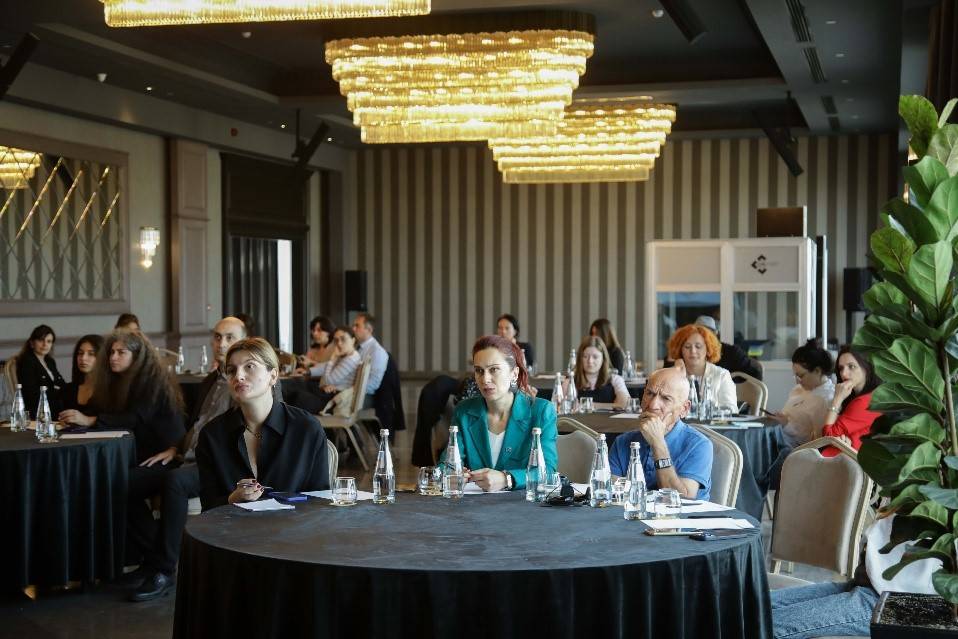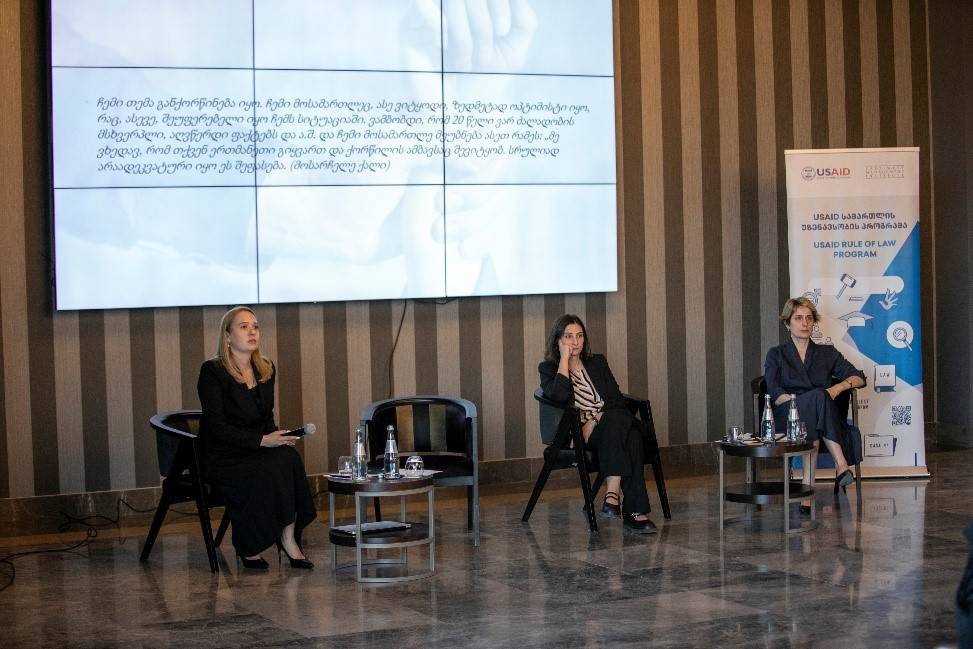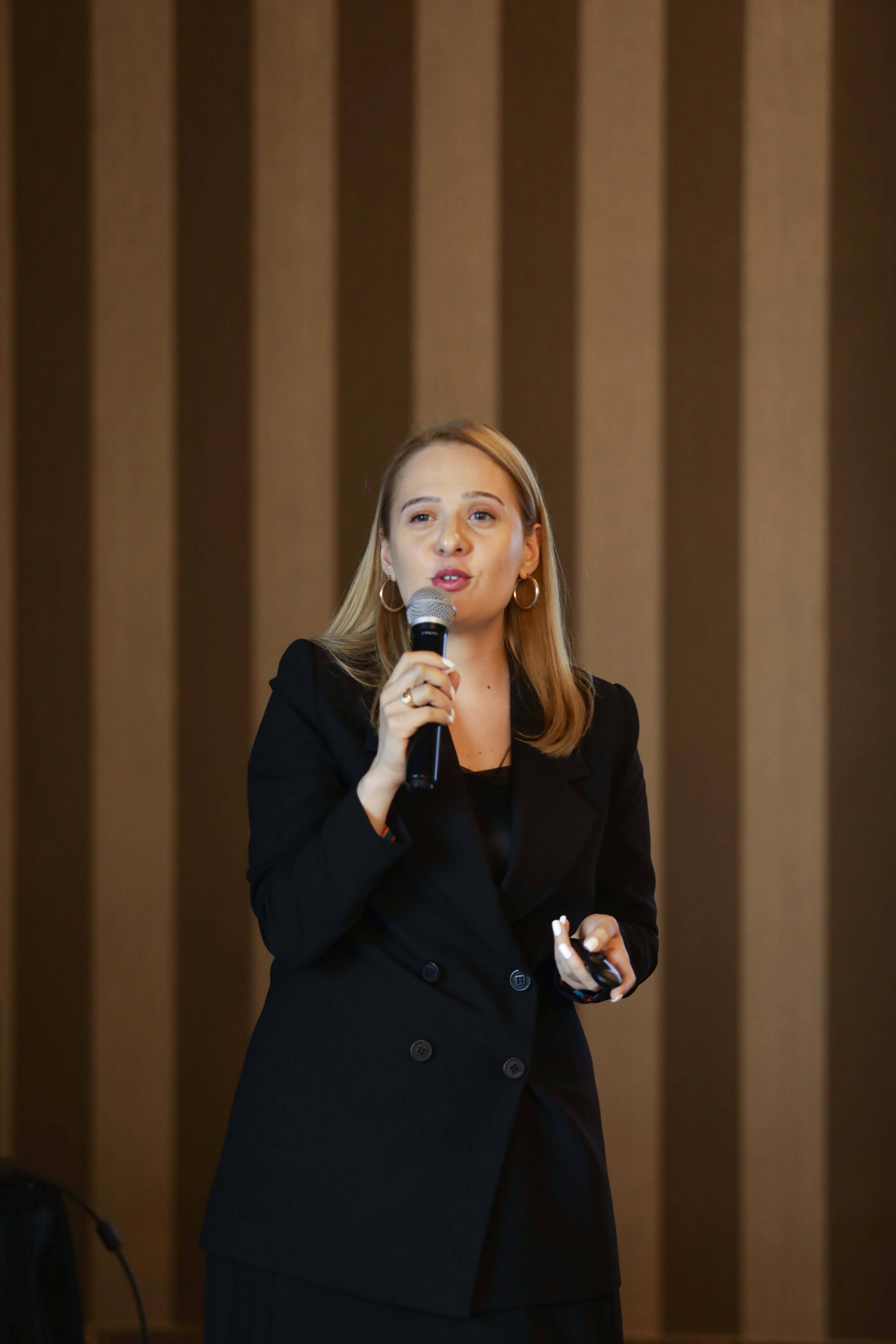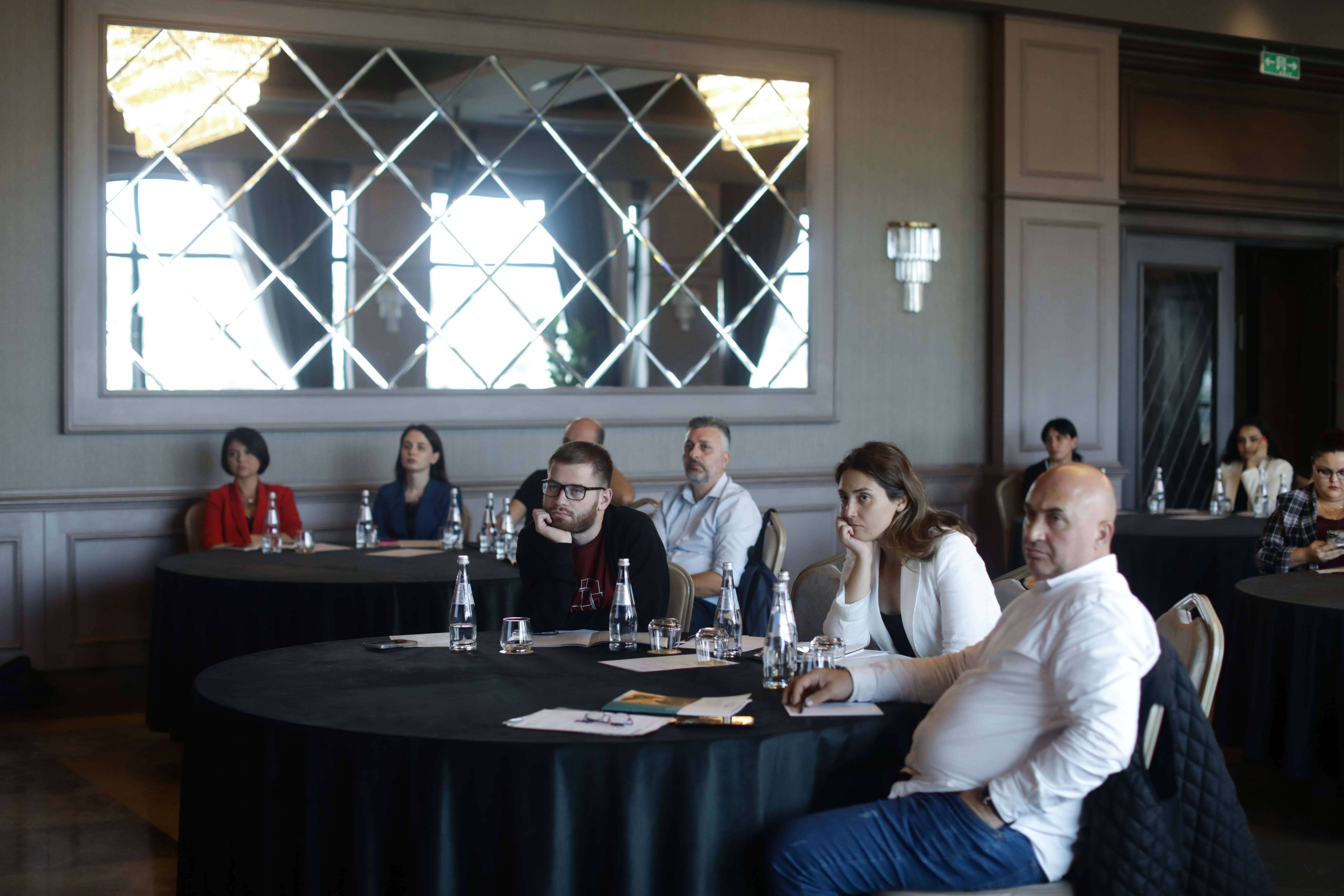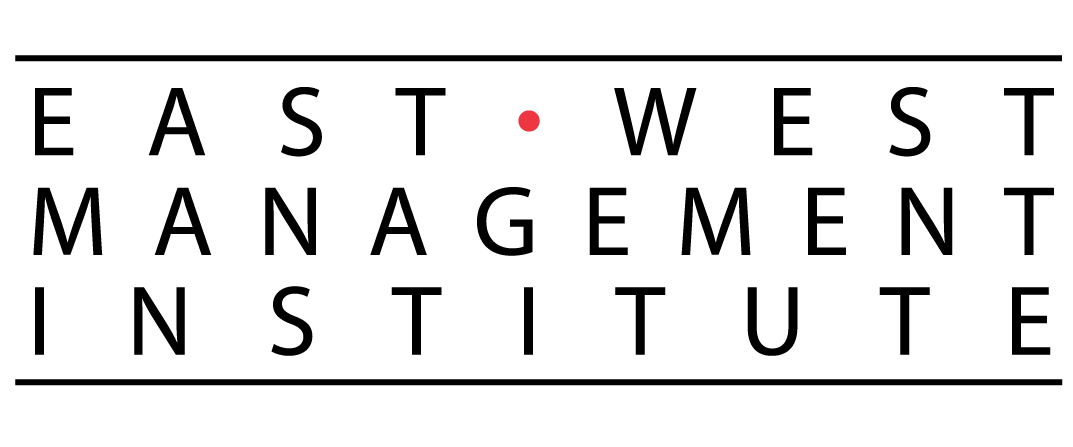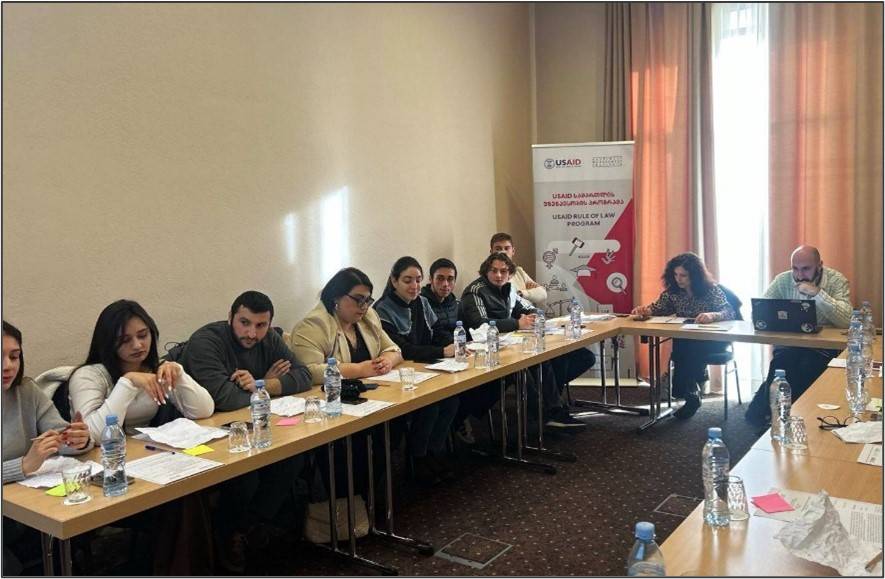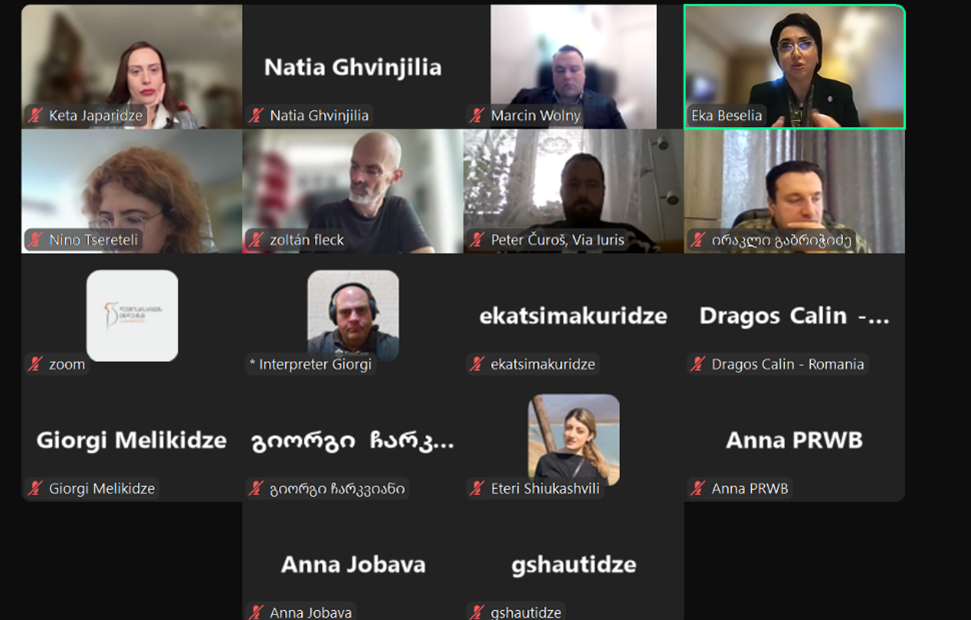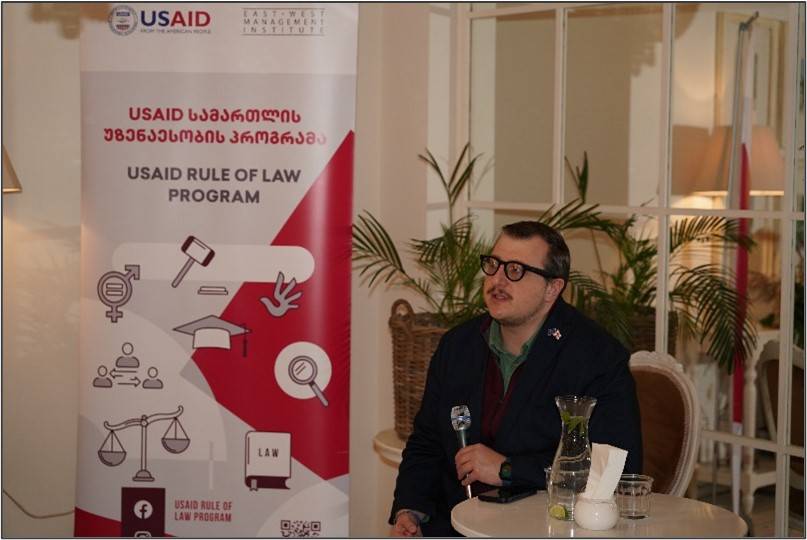Implementation of People-Centered Justice in Divorce and Paternity Cases - Research Presentation
On September 26, Ilia’s Legal House (Iliasi), with the support of the USAID Rule of Law Program, presented a study titled "Implementation of People-Centered Justice in Divorce and Paternity Cases."
In his welcome notes, Giorgi Chkheidze, the USAID Rule of Law Program Chief of Party said: "For over three decades, USAID has played a crucial role in supporting Georgia's journey towards democracy, justice, and economic development. One of the primary objectives of our Program is to fortify the justice system, empower individual judges, and advance transparency within the court system. We are committed to discerning the specific needs of diverse communities and individuals across villages and cities, ensuring that they can access justice. Our commitment goes beyond mere theoretical access; we strive to translate it into tangible, practical reality. This way, individuals receive the services they rightfully deserve, and their rights remain safeguarded."
Elene Sichinava, the Head of Ilia’s Legal House, shared the key findings of the study to the 35 attendees, who included representatives of the Parliament, Public Defender’s Office, judiciary, international organizations, and the local non-governmental sector. The research highlights the legal, institutional, and financial barriers that women encounter when seeking effective justice in disputes related to paternity determination, alimony determination, and property division.
As part of the research, Iliasi examined 151 court decisions from all three instances in Georgia, conducted interviews with 30 women involved in such disputes, and engaged with 91 professionals, including lawyers, judges, social workers, and mediators. Additionally, Iliasi conducted a comprehensive analysis of Georgian legislation, international instruments, and decisions from the European Court of Human Rights.
According to the document, "Conducting a genetic test to determine the child's paternity places a significant financial burden on women. Furthermore, upon establishing paternity, even if the father does not contribute to child support, the mother loses the social security guarantees designed for single parents. When considering alimony cases, the court often fails to assess the individual needs of the child, the time each parent allocates for childcare, and other pertinent factors. Instead, the starting point for decision-making is the defendant's official financial situation. It poses a separate challenge to establish the income of fathers obligated to pay alimony when they are informally employed."
"Unfortunately, there is no established minimum living wage for a child to serve as guidance for judges in determining the alimony amount. If the defendant does not willingly meet their alimony obligation, enforcement becomes exceedingly problematic. This is exacerbated by the fact that, in public registers, men are frequently listed as property owners, leading them to dispose of assets before or during divorce proceedings, leaving their ex-spouses without a fair share of the property. Despite the urgency of these matters for women, decisions in this category of cases often take days to be reached." – the report states.
During the event, representatives from Iliasi also elaborated on the concept of reform, the implementation of which would significantly enhance the delivery of justice in divorce and paternity-related cases. The organization's team intends to maintain ongoing cooperation with relevant agencies to facilitate the implementation of the recommendations put forth in the study.
